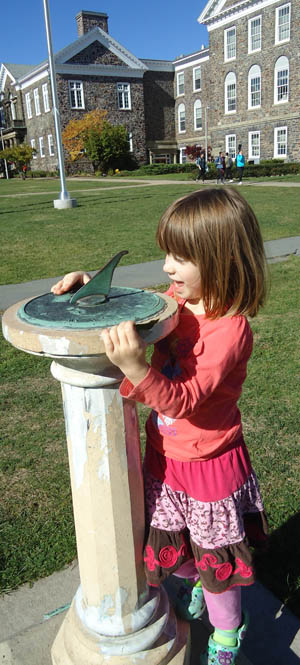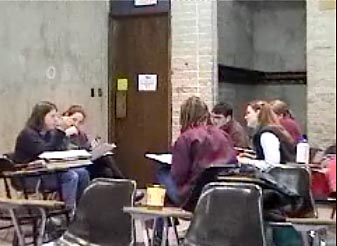Some documents and websites related to development of the web as a communication and learning tool for classes in Biology at Dalhousie University 1998 to 2008
- D. Patriquin
Prof of Biology, Dalhousie University (retired 2008)

Using the Web to Promote Collaborative Learning and Academic Critique
David G. Patriquin. 1998. Paper accompanying a presentation at the Atlantic Universities' Teaching Showcase, 24 Oct, 1998 at Mount Saint Vincent University. Published in Atlantic Universities Teaching Showcase 1998 Proceedings (Edited by Jane Gordon and Denise Novo), Mount Saint Vincent University, Halifax, N.S., pp 181-192.
Summary: Web based communication provides new venues for collaborative learning and academic critique. Twenty-six students in a one-semester class on Agroecosystems learned introductory level skills needed to prepare and handle Web documents in four Computer Learning Lab sessions. That enabled them to write term papers on Topics in Agroecosystems as Web pages and participate in a peer review process, which took place within groups of 4-6 students. Students expressed a high level of satisfaction with the approach, and appreciated that it gave them new skills. |
Web Literacy in the Science Curriculum
David G. Patriquin. 2000. Paper presented at the 5th Annual Atlantic Universities' Teaching Showcase, Saint Mary's University, Halifax, Nova Scotia, October 28, 2000. Published in Atlantic Universities Teaching Showcase Proceedings Volume 5 (Edited by Janet Hill and Denise Novo), Mount Saint Vincent University, Halifax, N.S., pp 87-102. (2001)
Summary Web based learning (WBL) is proving to be an effective, accessible and relatively low cost venue for delivering factual materials and developing lower order cognitive skills at the level of understanding and rule application. It is much less effective for developing higher order, critical thinking skills. Thus I suggest that the challenge - and the opportunity - provided by the rapid development of WBL is to deliver much more of what we now deliver in classrooms via the Web, and to make more use of the classroom as an environment to promote critical thinking through active learning approaches. It is crucial in both areas that faculty and students develop basic competency in "Web Literacy" and that we apply academic standards to the Web medium. Web Literacy is defined as the ability to make critical use of the Web to access information, and to prepare documents and Web sites that make effective and appropriate use of this medium. A suggested set of core technical skills for Web Literacy that can be learned by faculty in six 3-hour sessions in a computer learning lab is outlined.
The Talking Classroom: Class description for Biology 3068.03B AGROECOSYSTEMS, 2000/2001
The link is to a web page that advertised this class for the years 2000 and 2001. The class was delivered in one 2-hour classroom session and one 3-hour Computer Learning Lab session each week. Collaborative and problem-based active learning techniques were applied in the classroom. In the labs, students learned Web Literacy skills and worked on assignments individually and in groups. Web-linked professor-student and student-student interactions and online delivery of class materials occurred outside of classroom sessions. A password protected Class Work Site served to coordinate class activities. A formally published, publicly accessible class site on Agroecosystems was maintained and further developed though class activities.
A few more details The students were organized in groups of 4 -6 (total enrolment 20-25 students). Classroom sessions involved Factual Learning in one week and Problem-Solving in the second week, these repeated until the final two classroom sessions in which students reported on their individual class projects. In the classroom, students were organized physically according to their groups; groups were given a list of questions to answer and discuss in the Factual Learning weeks, and a page with a quantitative problem to solve in the problem-solving weeks. The students 
The Talking Classroom. Click on image to view video |
worked on these assignment within their groups for 1 hour then had a 15 minute break, followed by a 'plenary' with reports from each group and related discissions. The professor did not lecture, rather he kept a list of topics that he wanted to cover and introduced them opportunistically in the course of class discussions. It was a 'talking classroom' with students initiating and doing most of the talking. Students applied the "Web Literacy" skills that they aquired in the first four labs (mainly some basic HTML and image manipulation techniques and some of the nuances of writing for the web) to (i) make personal web pages to introduce themselves to the whole class and (ii) report on their literature research projects in the form of a web site. Simple, php-based discussion forums had been developed for this class by a computer science student; each group had their own discussion forum which they used to communicate outside of the classroom. |
Teaching Genetics/Learning Genetics I - On line courses: The joy of a noisy classroom
Extract from an article based on presentations in the Genetics Education Workshop, facilitated by Kathleen Fitzpatrick (Simon Fraser University) and Vett Lloyd (Dalhousie University) at the 2003 Genetics Society of Canada meetings held in Halifax, Nova Scotia.
Facilitating Access: Introductory Biology Classes Online
Authors' version of paper for E-LEARN 2005 CONFERENCE,
Oct. 22-28, Vancouver, B.C. Copyright by AACE
Authors: David Patriquin, Colleen Adl, Jennifer Van Dommelen, Carol O'Neil, Bill Freedman
Abstract: Currently, few universities offer fully online versions of their introductory science classes although online delivery would greatly facilitate access to these key classes. The Dalhousie University Biology Department and the University's Centre for Learning and Teaching developed two fully online classes which together meet the introductory biology requirement. This paper highlights key concepts and resources drawn upon in designing the classes (e.g., providing generic content with a "Dalhousie stamp", creating an active learning environment, use of WebCT and a major biology textbook and its associated multimedia resources), the presentation format (asynchronous, 13 weekly lessons and assignments, a Term Project; one teaching assistant per 20 students), student response (mostly highly favourable, mark distributions similar to those of the conventional classes) and major challenges (e.g., providing the equivalent of a laboratory experience).
View current (2020) offerings of these classes: Biology 1020/1021
|

